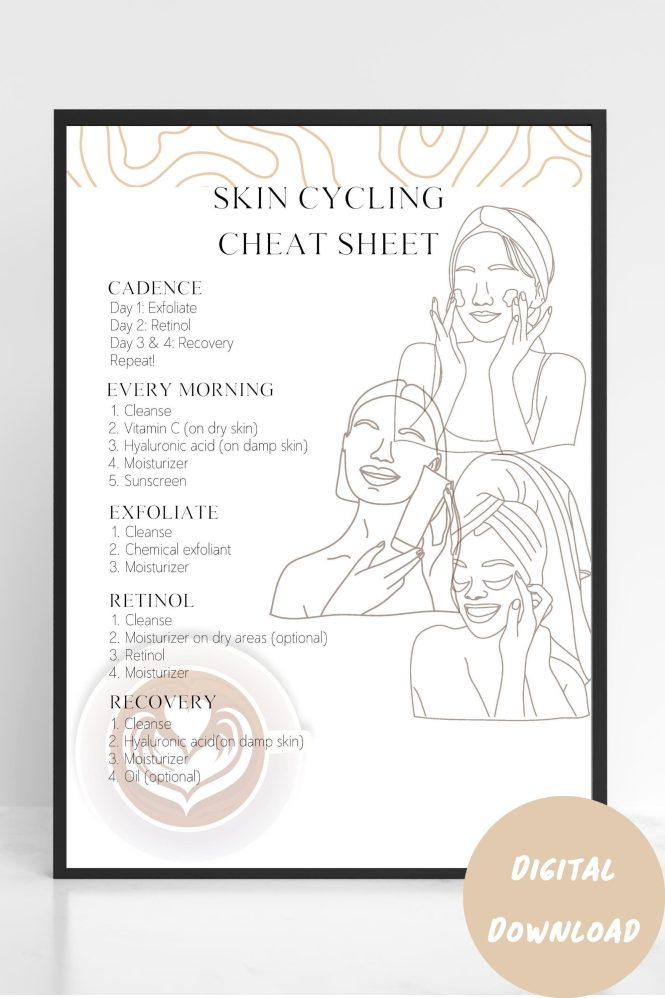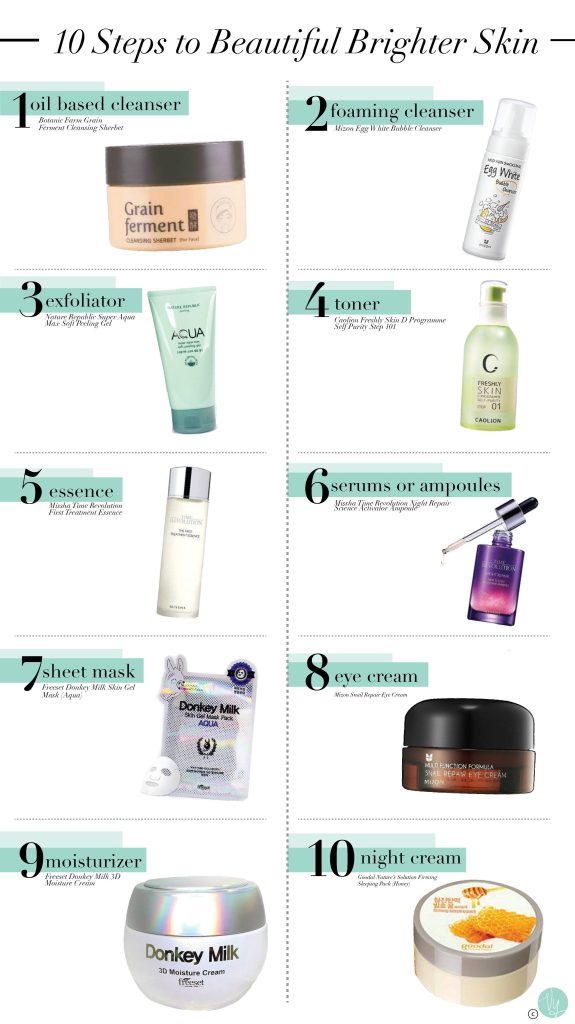

Building Your Perfect Skin Care Routine is essential for achieving healthy, radiant skin. A well-designed routine, tailored to your specific needs, can work wonders for your appearance and overall well-being. But with so many products and recommendations out there, how do you know which ingredients and steps are right for you? This comprehensive guide will help you navigate the world of skincare, demystifying the process and offering practical steps to build a personalized routine that meets your unique requirements. We’ll cover everything from identifying your skin type and choosing appropriate products, to understanding the best application techniques and the importance of consistency. This guide is structured into sections: Identifying Your Skin Type, Choosing the Right Skincare Products, Creating a Daily Routine, and Maintaining Your Skin Care Routine. Let’s dive in!
Identifying Your Skin Type
Understanding Your Skin’s Unique Needs
Knowing your skin type is the cornerstone of a successful skincare routine. Different skin types react differently to various products, so tailoring your routine to your specific needs is crucial for achieving healthy skin. Skin types can range from oily to dry, sensitive to combination, and normal skin. Identifying your skin type is a critical first step to choosing the right products and developing a routine that works for you. Oily skin often produces excess sebum, leading to shine and breakouts. Dry skin lacks moisture, resulting in flakiness, tightness, and a dull complexion. Combination skin exhibits characteristics of both oily and dry skin, with different areas having differing oil levels. Sensitive skin reacts negatively to many ingredients and products, often displaying redness, irritation, and discomfort. Normal skin, on the other hand, is balanced, displaying minimal issues with appropriate moisturizing, and avoiding extreme reactions to the environment. Knowing your skin type can prevent mismatched routines and ensure you’re nourishing your skin correctly.
Skin Analysis Tools
Using tools like online quizzes and professional skin analysis can aid in this process. Many reputable skincare brands offer quizzes to assess your skin type, providing a starting point for developing a personalized plan. In addition to these tools, consulting a dermatologist is highly recommended to ensure the assessment aligns with your individual circumstances and needs. Dermatologists can use their expertise to thoroughly evaluate your skin and offer tailored guidance.
Choosing the Right Skincare Products
Essential Products and Their Functions
Choosing the right skincare products is paramount for achieving healthy skin. This involves considering the specific needs of your skin type, your budget, and the available options in the market. Essential skincare products include cleansers, serums, moisturizers, and sunscreens. Cleansers help remove dirt, excess oil, and makeup, keeping pores clear and preventing breakouts. Serums are concentrated formulas containing specific ingredients that address specific concerns such as dark spots, acne scars, or fine lines. Moisturizers provide hydration, preventing dryness and flakiness. Sun protection is critical to prevent premature aging and skin cancer. Knowing the function of each product will guide you in selecting items that effectively address your skin concerns.
Ingredient Considerations
Ingredients play a significant role in product efficacy. Look for products with high-quality, clinically-proven ingredients like vitamin C for brightening and collagen boosting, or hyaluronic acid for hydration. Consider avoiding harsh chemicals and fragrances, especially if you have sensitive skin. Research ingredients known for effectiveness and compatibility with your skin type.
Creating a Daily Routine
Establishing a Consistent Schedule
Creating a daily skincare routine is key to maintaining a healthy complexion. A consistent schedule ensures that you don’t skip steps, fostering optimal skin health. A simple routine might consist of cleansing, toning, moisturizing, and sun protection. Consider tailoring your schedule to your lifestyle and specific needs. Adjusting the routine for different occasions, such as sleep or travel, is also important. Remember to adjust the routine based on your skin’s needs, and remember to add or remove products to accommodate specific needs. Consistency is key! Avoid drastic changes in products or procedures. Implementing small changes, like adding a toner or adding a hydrating mask, can also contribute to a more complete routine.
The Correct Application Techniques
Applying skincare products correctly is vital for maximizing efficacy. Use gentle, circular motions when cleansing. Apply serums and moisturizers in upward, patting motions. Use your fingertips to apply product to avoid contaminating the application tool and the product itself. This practice creates a positive experience that is effective and safe. Remember to rinse properly, and consider utilizing tools and techniques based on your needs.
Maintaining Your Skincare Routine
Adapting to Changes and Challenges
Maintaining a skincare routine can be challenging, especially with busy schedules and unforeseen circumstances. Adaptability is key to maintaining a consistent routine, which is vital for lasting results. Adjusting your routine to accommodate changes in your lifestyle is essential to avoid frustration and maintain the routine. A travel-friendly, minimalist skincare routine is beneficial to maintain and preserve results when traveling. This involves smaller product sizes, and suitable and lightweight items. Incorporate occasional treatments to address specific skin concerns. For instance, incorporating weekly face masks can deliver targeted nutrients.
Consistency is Key to Success
Consistency is the cornerstone of a successful skincare routine. Even if you feel like you don’t see immediate results, sticking to your routine consistently over time will yield visible improvements. This approach will allow you to monitor progress and identify areas that require adjustments or additional products. Skincare routines need to be flexible to accommodate for different life circumstances, thus adapting the routine will maintain a healthy and happy relationship with the routine. This will maintain consistent usage of the routine.
Additional Tips
Importance of Hydration
Hydration is essential for maintaining healthy, radiant skin. Drink plenty of water throughout the day to keep your skin hydrated from the inside out. Moisturizers can supplement and enhance internal hydration.
Stress Management
Stress can have a negative impact on skin health. Practice stress-reducing techniques like yoga, meditation, or spending time in nature to support a healthier complexion.
Frequently Asked Questions
What are the key steps in a skincare routine?
A robust skincare routine typically involves cleansing, toning, serums, moisturizing, and sun protection. Proper cleansing removes impurities, toning balances the skin’s pH, serums provide targeted treatments, moisturizers hydrate, and sunscreen protects from harmful UV rays.
How often should I adjust my skincare routine?
Adjust your skincare routine as needed, but avoid making significant changes too frequently. Instead, observe your skin’s response to new products or techniques and make adjustments based on how your skin reacts. Gradual changes are key. This avoids unnecessary product disruptions or skin reactions.
In conclusion, building your perfect skin care routine is a journey, not a destination. By understanding your skin type, incorporating effective products, and maintaining a consistent schedule, you can achieve healthy, radiant skin. Remember to listen to your skin, adapt your routine as needed, and prioritize consistency for optimal results. Ready to embark on your skincare journey? Click here to download our free skincare guide!